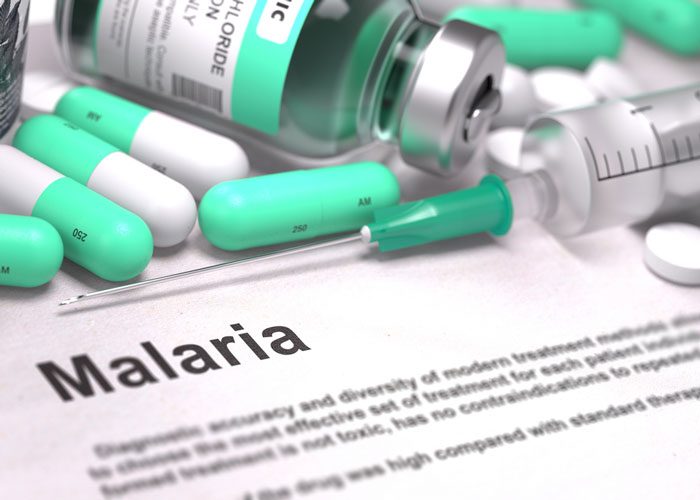The prospect that a pair of malaria drugs will become go-to medications for treating COVID-19 before they’ve been rigorously tested is prompting new safety warnings from heart specialists and other doctors and experts.
President Donald Trump has touted the drugs chloroquine and hydroxychloroquine as a potential “game-changer” for patients sickened by the novel coronavirus, and federal officials have asked pharmaceutical manufacturers to make their stocks of these drugs available for immediate use.
But as the medications begin pouring into hospital pharmacies and physicians begin prescribing them, their potential side effects are raising alerts.
READ ALSO: Stop posting pretty pictures; show leadership – Fani-Kayode slams Buhari
An article published this week in the Mayo Clinic Proceedings warns that both drugs could prompt dangerous and potentially deadly heart arrhythmias in the 3 million people worldwide who have a congenital cardiac condition – called long QT syndrome – that can cause the heart to beat erratically and lead to sudden death.
In addition, millions of people in the U.S. take medications that prolong the heart’s “QT interval,” the span of time it takes the heart’s electrical system to recharge between beats.
Those people – including patients who take common antidepressants and antipsychotic drugs or any one of a wide range of antibiotics – are probably also at risk of developing a dangerously irregular heartbeat if they take one of the malaria drugs without being closely monitored by a doctor, the article’s authors said.
Roughly 13 per cent of Americans over the age of 12 take antidepressant medication.
It’s not clear how many more Americans are “QT reactors” – people whose hearts respond to certain drugs with electrical changes that could trigger arrhythmias and sudden cardiac death.
With potentially millions of patients taking chloroquine or hydroxychloroquine, the unexpected appearance of these side effects in even a small percentage of them could spell disaster, said Dr Michael J. Ackerman, a geneticist at the Mayo Clinic in Rochester, Minnesota, who co-authored the new report.
“We will pay the piper for this tragic side effect, and we need to make sure we do everything possible to prevent treatment-related sudden death,” said Ackerman, who treats and studies those with congenital heart conditions.
“We have the tools and we have the knowledge” to avoid sudden cardiac deaths among people treated with the malaria drugs, Ackerman said.
But the medical community will need to be made more aware of this side effect.
He added that if these drugs are to be used safely, doctors will need to screen their patients carefully and devise a plan to monitor their heart rhythms after they’re sent home with the drug.
Meanwhile, a dispatch posted this week to MedPage Today, a blog and medical news service widely read by doctors, warned that chloroquine can cause hemolytic anaemia if administered to people with a common genetic condition called G6PD deficiency.
Hemolytic anaemia can lead to shortness of breath, rapid heartbeat, and in severe cases, kidney failure and death.
“Chloroquine is not a harmless panacea for COVID-19,” wrote Dr Dan J. Vick, a pathologist who teaches healthcare administration at Central Michigan University.
Its use is specifically discouraged in patients with G6PD deficiency.
The problem: Many of those patients never know they have G6PD until a new drug or dietary quirk triggers a crisis that prompts red blood cells to break down faster than they can be made.
The disorder affects between 10 per cent and 14 per cent of African American men in the U.S. and is common in people from the Mediterranean region, Africa and Asia.
Nearly all patients with G6PD are.
Across the world, some 17 clinical trials are testing the safety and effectiveness of chloroquine or hydroxychloroquine against COVID-19.
Two clinical trials in the U.S. aim to test whether hydroxychloroquine might prevent illness in U.S. healthcare workers or caregivers who have been exposed, COVID-19 patients.
When medications are tested for use by healthy people who may become ill, regulators typically demand a high level of safety.
A recent review of research on chloroquine as a treatment for COVID-19 concluded that “it seems to be effective in limiting the replication” of the novel coronavirus in laboratory dishes.
Clinical trials in humans and other primates, however, have tempered hopes.
Both chloroquine and hydroxychloroquine failed to help patients infected with the dengue and chikungunya viruses, and it also failed to protect against the flu.
The Italian doctors who authored the review in the Journal of Critical Care added that “safety data and data from high-quality clinical trials are urgently needed.”
Meanwhile, the drugs used to treat lupus and rheumatoid arthritis are also pouring into hospitals and pharmacies in the U.S. and around the world.
Trump has insisted there is “very strong evidence” to support his confidence in the malaria drugs as treatment for COVID-19.
“I feel good about it,” he said last week. “That’s all it is, just a feeling.”
The pharmaceutical giant Novartis has pledged a donation of 130 million tablets of hydroxychloroquine, and the generic manufacturer Teva announced it will donate 16 million tablets to hospitals across the United States.
The generic giant Mylan said it is restarting production of hydroxychloroquine at a manufacturing facility in West Virginia and could readily produce 50 million tablets.

